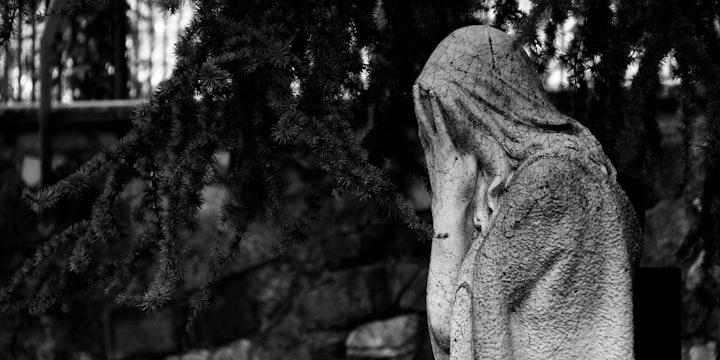I Am Not Her Negro
(on James Baldwin, Guilt and Seeing You in Me)

This was the scene. I had just watched the movie “I Am Not Your Negro” at the AMC Forum in Montreal. I quite liked it; many of the clips used to trace important moments in the life of the writer James Baldwin were material I had seen online or on TV programs too far back in my youth to forget them. What surprised me the most was the general premise of the movie: Baldwin intended to write a book based on the lives of Dr. Martin Luther King, Jr., Malcolm X, and Medgar Evers. He knew all three men. He understood what they represented for black America and how they were molded and formed by their relationship to white America. And he saw that all three men wanted the same things: respect, opportunities, and hope for themselves, their communities, and their families. Those dreams would not always be granted in their lives, but it was earned in their deaths and the legacies they left to be discussed and debated. The moments when Baldwin’s own responses to their losses are shared by Samuel L. Jackson are very moving; some of the most powerful moments in the film have no visible action on the screen except his voice repeating Baldwin’s own deep feelings. And because of these moments, I considered the film a true success. The audience seemed to feel that way, too, although I could not measure all of the individual opinions next to mine. It was a movie I had to watch without being conscious of any after-credits discussion about its merits, problems, and what it was all meant. I never thought about what it meant. I thought about how I felt. I thought about James Baldwin. I thought that I had to see it again.
And then I met her. She was an older white woman, also on her own, who felt that she had to stop me as I walked through the mall afterwards on my way to the Metro. She had to say something to me about the film.
“You just came from ‘I Am Not Your Negro,’ right?”
She was right ahead of me as she spoke, as if she had been waiting for me to arrive.
“Um, yes. I did.”
“Me, too. I was going to see ‘Hidden Figures,’ but I couldn’t make myself go see it.”
I thought that she was exaggerating her response to that film (or maybe her lack of a response to it)…until she showed me the ticket she had purchased and not used.
I do not remember everything that she said to me after I saw that ticket. She had watched “I Am Not Your Negro” in the same theatre by herself and wondered, to herself and now to me, what she could do as a white person to make things better for me. She meant “black people,” but it felt as if she were begging me for a favour.
It was not the first time I had been approached in such a way and been asked to provide a solution for a problem that was not mine to solve. There were teachers, fellow students, students from other schools, co-workers, acquaintances, people encountered at parties, clubs, cafes, restaurants, etc., who all had the best of intentions in their heads and hearts when they approached me for an impossible answer. And every time I felt as though I had given a clear and helpful response, I knew that it had not really helped. And here I was, once again, doing the exact same thing with a complete stranger.
Now, let me just say that I did not mind being asked; it is just that the questions always seem wrong. What can I do for you? How can I change for you? What should I do as a white person for you? I never responded the way Malcolm X did when a white Harvard student posed the same sort of questions: “Nothing”. Malcolm later regretted that response, but I still feel the burden of it. I felt the pressure behind the words. And I did not appreciate being their particular gateway into the “black experience”. I did not want to be their pet representative of “Africanness”. I did not want to be their Negro.
*
I should thank James Baldwin for this. He had already written a great deal about how white people looked at black people and project their own feelings into the relationship. But he wrote as an American living in Harlem and encountering the problems of being black in the United States, both in the north and the south. I did not have this particular luxury. My family and relatives came from one of the smallest islands in the Caribbean and sustained each other as a real community facing all of the problems any immigrant faces in this climate. The poverty I faced as a young boy did not sting me as it would if I had lived in Baldwin’s world. I always knew that there would be a home for me to run to if there was some sort of emergency for me to avoid. There was always food on someone’s table; there was always someone who cared. The real monsters in my life were the threats of violence in my own home from my father and in the schoolyard or neighbourhood. They did not exist in the police, store clerks or landlords. There was a difference.
I guess I cannot leave that dangling there without some commentary. My father was the snake in that garden. But I knew how to avoid him when things did get too intense. It was when we moved to the suburbs – further and further away from those other safe houses – that I became trapped. And this is still something I wonder about as an adult. My childhood divided neatly between urban and rural landscapes (a great gift to a boy with an imagination), but the move presented a world where the violence was more upfront. This seems strange to suggest, but what remained hidden in the city became much more obvious and on full display in the suburbs. And my father felt that this was the moment in my life when discipline was I needed most. I was beaten up but also beaten down, often told that I was nothing compared to “other relatives”. I later learned that he was referring back to his first family and the children he had had earlier in that previous marriage (not much to be proud of; they would eventually reveal their own problems with crime and drugs). And it did get to me. He died two days before Christmas when I was ten years old (also the day he was to be released from hospital after seeming to recover from a heart attack), all of that in suburbia; all of that when I was supposed to be safe from all the negative influences of urban life.
Baldwin’s father – a storefront preacher who brought nine children he could barely feed into the world – was described in the film as a man who “could not bend; he could only break”. I saw this in my father as well. He never seemed to do the things other dads did – no general horseplay or games of dominoes within our community – and his interests pushed him further away from his peers (I found both communist literature and a well-read biography of Adolph Hitler). If he had lived a little longer, we might have had the chance to talk and debate what we believed to be true about our lives. But there is also the chance that we would never have fixed our relationship.
I seem to have moved away from my theme. But maybe I can bring it back. As I said, I was not Baldwin, but I did have a father who was a monstrous figure in my life. I have no idea if Baldwin looked for therapy after his difficult childhood – maybe the therapy was the writing – but I did take some time to meet with a therapist while I worked on my master`s degree. He even encouraged me to write a letter to my father (I took a whole notebook to complete it). The only mistake I made was that I wrote it all out in a café after one of our last sessions and did not realize how hard it would be to complete it. My hands began to shake; my body began to shake and sweat. I still remember how I gouged my words into the paper to the point where I thought I would be left with nothing but shredded paper. The book still exists somewhere in a box in my home (I have no urge to look for it again).
*
I concluded that section with how writing became a form of therapy for me. I am not making any claim that I achieved anything comparable to Baldwin’s essays and articles, but I understood that he was also a man who had to deal with the constant push and pull between what people perceived and what you actually were as a human being. I saw in the film a man who learned how to survive by his pen and thoughts; I saw him as a writer and thinker I wanted to emulate; I saw him as an example of how to be a man. Being able to accept the painful realities of our societies allowed me to write the truth, no matter how ugly it might be. They were realities that destroyed many others that could not bear to live with the lies behind the questions and the probing of society’s real face. But there was still the burden of being the one who got away from the pain, the “role model for a community” as someone put it to me one day. I had to be the success for the younger kids of the relatives I knew all my life. I had to be someone they looked up to and admire.
And that is why that moment with a strange woman in a mall’s food court still bothers me. I felt the same kind of unspoken trauma when I had to put it down in a letter to my father in a notebook and could not stop my body from responding to my emotions. I have played this scene out too many times in my own mind not to think of it as a kind of curse. It came on top of all of the other problems I had without a father – even an abusive one – and being a black male in this society. It came with the realization that I had no idea who I really was. The questions posed left me feeling as unbalanced and awkward as when I first wrote those words to my father. And yet I do not feel any hate for that woman or for any of the others that had approached me for a solution. Certain problems never seem like they have a solution. They were looking for their solution through me. They had the thought that I could be their Negro.
*
Thank you for reading!
If you liked this, you can add your Insights, Comment, leave a Heart, Tip, Pledge, or Subscribe. I will appreciate any support you have shown for my work.
You can find more poems, stories, and articles by Kendall Defoe on my Vocal profile. I complain, argue, provoke and create...just like everybody else.
Give it a look...
About the Creator
Kendall Defoe
Teacher, reader, writer, dreamer... I am a college instructor who cannot stop letting his thoughts end up on the page.
And I did this: Buy Me A Coffee... And I did this:






Comments (1)
Again, phenomenal writing. I’m angry this is just sitting on Vocal, ignored. It deserves a wide audience. It seems as though great writing languishes here, while sensational pieces are awarded attention whether or not they’re of high quality. I plan to enter some challenges due to my competitive nature, but not otherwise share work here. You are a formidable opponent in the Identity challenge with your skill for nonfiction, and I appreciate that. It inspires me to give my best. I’ll be watching you. 👀